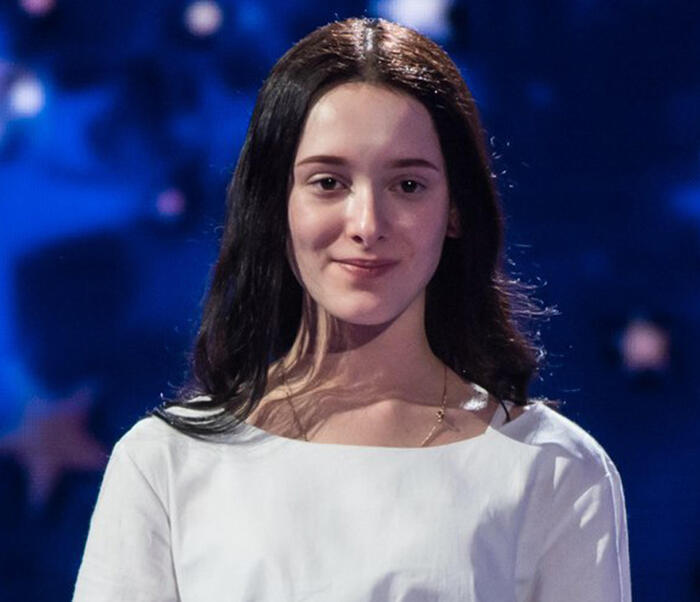One of the most important musicians in the history of Israeli music today celebrates 70 • A good time to remember the stories behind some of the iconic songs he wrote
Clafter at Hive Union in 2013
Photo:
Coco
Yitzhak Klafter, one of the greatest Israeli musicians, is celebrating his 70th birthday today. In recent years his health has made it difficult, but that difficulty cannot overshadow the extensive work of this talented musician, who sometimes seems not to throw a stone - hit a song he wrote or composed, And sometimes they're both together. From his days in the Churchill Band through the "Latter-day", "Hive" and "Directed Sound" ensembles, and later in his only career - this is one of the most influential musicians in Israeli culture. For his birthday, we chose to tell the stories behind five of his iconic songs.
"She's so pretty"
Among the hive of Hive's hits, the chords and chord moves of "She's So Beautiful" seem to be the most "calpatric" in essence. The song was born following a visit by Ephraim Shamir, Clapeter's friend to the Hive Band, at Clapter's home. Shamir listened to the material Clapter wrote, and he liked two of the poems. He offered Clapter to put them together - and Clapter did. Although he had previously composed a song for the band together with Sanderson ("Yo Ya"), it was the first time that he had made a tune that he alone created one of the band's most prominent songs.
"Bedouin love song"
Among the songs that best exemplify Klafter's musical ability to compose songs for others is "Bedouin Love Song," which came out in 1978. Originally, the song was written for Jonathan Geffen's "Living Calls" show, a show Geffen suggested to Clafter to join after the 1976 beehive disbandment. Clafter found himself in financial and legal trouble, and the proposal to join Geffen's show was the first time he wrote for others "by invitation."
For the show in question, Klapter composed classics such as Yael Levi's "Green Island at Sea" and "The Picture" (which later became the opening of the "Four Afternoon" program in the IDF waves), but by far the most memorable song of the show is of course "Bedouin love song" , Written by Itzik Weingarten, Klapter's melody, combined with the adaptation of his ex-boyfriend Danny Sanderson, spawned one of the most beloved Israeli songs to date.
"Bedouin love song" stayed on the C network's weekly chorus for all three summer months of its release, and in August 1978 conquered the summit. He originally sang it himself with Yael Levy, but after he left the show, David Broza replaced him and even recorded the song in his voice.
"Tuned Tone"
The name of the composition in which Klafter was a member in the 1970s is also the name most closely associated with the song. If, within the Churchillas, he and his bandmates demonstrated their affection for Seventeen Psychedelia and Metal Fathers, then the story of "deliberate sound" was radically different. In this composition, Kaptter's catchy writing and composing skills and his friends Shlomo Yedov and Shem-Tov Levy were expressed, and they are part of some of the iron sheep's assets in Israeli culture. "The Children of the Moon" and "White Days" are just two of them, and with them also a "deliberate sound" after which the composition is also called.
The song itself is brought from the perspective of a man who wants to return to his beloved, after years in which they are both completely out of touch. The melody and pleading with Clafter's sensitive submission made "deliberate sound" an instant hit.
This seems to be the most recognizable and most recognizable song by Klafter, and its title has become a kind of tongue coin. Among other things, Kobe Oz used it when he used the name of the song as the name of a documentary program produced by the Broadcasting Corporation "here" for the 70's. Unfortunately, despite the release of one of the most beautiful Israeli albums of his time, the composition "deliberate sound" fell apart after no more than one year.
"If you are around"
In the early 1980s, Clafter found himself without a band or composition. Reality brought him to a solo career, which also included writing and composing for other artists. During this period he composed, among other things, "Naive Ballad" to the words of Jonathan Geffen and all the songs of the album "Sitting on the Fence" by Eric Einstein. One of the most recognized and beloved of this phase of his career, in which he has contributed quite a bit of his work to other artists, is "If You Are Around" - which is better known for its second name: "My Town." It was written and composed for Eric Sinai, who released it in 1981 as part of his second album "Heavy Shadow." "If You Are Around" was actually written about Clafter's childhood neighborhood in downtown Haifa. Sinai himself grew up in Kiryat Bialik at all, but that didn't stop him from singing what became his biggest hit.
Legend has it that Sinai, then a musician at the beginning, asked Clafter to write a song for him, and it was answered and asked that they go there to his home. A few minutes into the trip and the two had already begun to pitch ideas to the song, and by the time they got to Clafter's house - the song was already ready. Incidentally, in a 2015 interview, MK Avigdor Lieberman said that it was his favorite Hebrew song.
"Free Imagination"
Clafter's solo career continued throughout the Eighties and in 1988 he released his third album, "Hold On." The choice of the album name was no accident. It was written after the failure of his second album "Alone", which was unsuccessful and did not include radio hits. This led Clapter to a difficult financial and mental state and for a period it was easy to retire from a single act.
But then a beehive reunion show in the summer of 1984 rescued him from this low point, and he turned to record his third album.
This album was not a great success either, but the real hit of the album was the song "Free Imagination" which, over time, gained a temporary status in the local rock pantheon, in part due to the sound of the guitar so closely associated with Clafter. Clafter said that due to his financial situation at the time, he could not accompany him, so he played all the guitar roles in the song himself. He also said that had he not left Hive, the song would not have been written.
In 2013, he recorded a new version of the song, for Eitan Gaffney's "Cannonball" soundtrack. It was a new and macabre interpretation of Clapter's song, accompanied by the background voices of metal band Orphaned Land singer Kobe Farhi.
• Listen to Neta's corona song
• Do the celebs benefit from the Corona?
• A complaint was filed against Avihu Pinchasov
• Without shirt: Uri Sasson is training outside
• What did we think of the comeback of "That's It" and "Comedy Store"?
• The son of Orna Banai a 16 year old mentor









